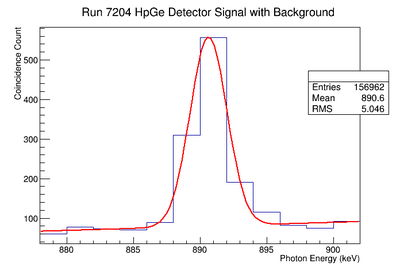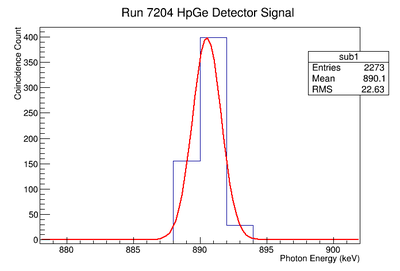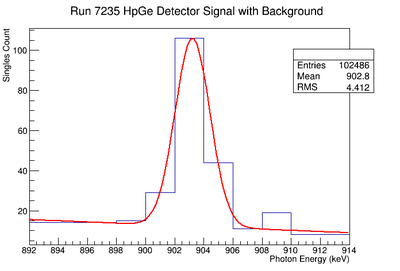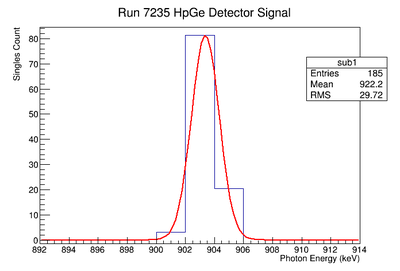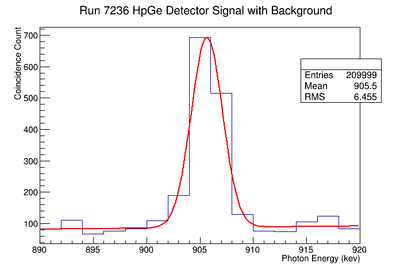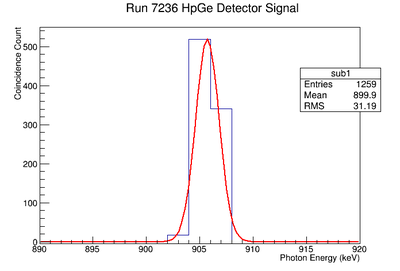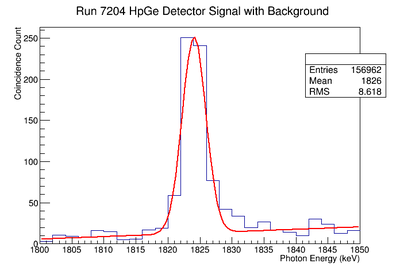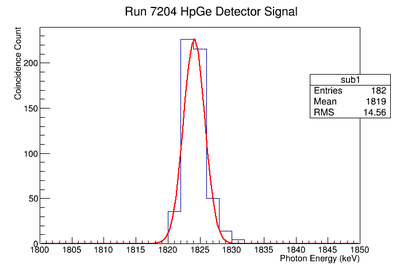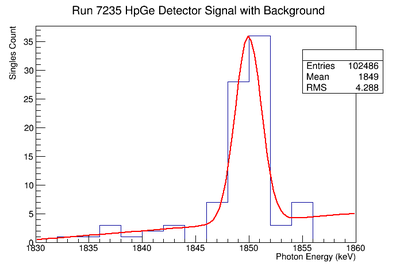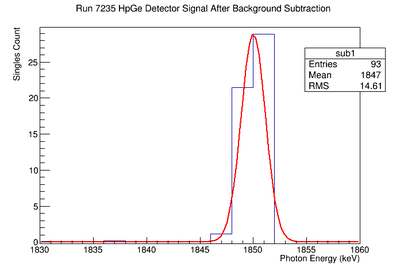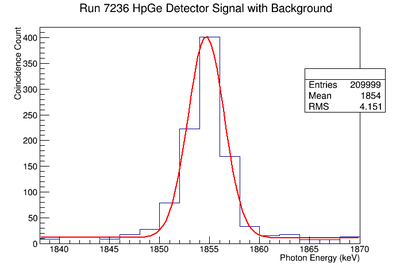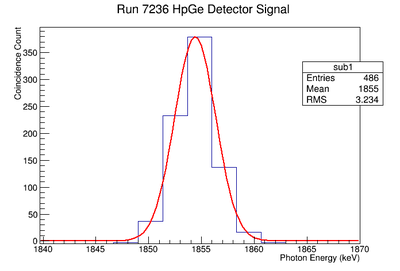Difference between revisions of "A W thesis"
| Line 135: | Line 135: | ||
| <math>T_{1/2}</math> || Trig || Signal || BackG Subtracted || colspan="5" | Fit Parameters || Signal Area || Noise Area || SNR | | <math>T_{1/2}</math> || Trig || Signal || BackG Subtracted || colspan="5" | Fit Parameters || Signal Area || Noise Area || SNR | ||
|- | |- | ||
| − | | rowspan="2" | .5|| sing || rawsig_7235.png || bckgsubsig_7235.png || A +/- dA || B || B || B || B || || || 5 | + | | rowspan="2" | .5|| sing || [[File:rawsig_7235.png | 100 px ]] || bckgsubsig_7235.png || A +/- dA || B || B || B || B || || || 5 |
|- | |- | ||
| coin || rawsig_7236.png || bckgsubsig_7236.png|| A +/- dA || C || C || C || C || || || 6 | | coin || rawsig_7236.png || bckgsubsig_7236.png|| A +/- dA || C || C || C || C || || || 6 | ||
Revision as of 22:32, 4 August 2014
Introduction
Methods of determining atomic concentration in Material
Neutron Activation Analysis (NAA)
Inductively coupled plasma mass spectrometry(ICP-MS)
Inductively coupled plasma atomic emission spectroscopy(ICP-OES)
Atomic Absorption Spectrometry (multi-element AAS)
Particle-induced X-ray Emission (PIXE)
Another method, uses X-ray from a synchrotron light source and look at the de-excitation of atomic electrons to measure the atomic number. Reports are that they can measure pico-gram quantities.
table of detection limits -vs- Method
Coincidence Counting Setup
Y-88 CAA
Background subtraction
Do the fit:
get parameters for line
Then fill 1 histogram with line
Then subtract
TH1F *coin1=new TH1F("coin1","coin1",30,1800,1860);
ntuple->Draw("ADC7*0.604963-49.7001 >>coin1")
TH1F *lin1=new TH1F("lin1","line1",30,1800,1860);
for(int i=1800;i<1861;i++){
lin1->Fill(i,-2028+1.12*i)
}
TH1F *sub1=new TH1F("sub1","sub1",30,1800,1860);
sub1->Add(coin1,1);
sub1->Add(lin1,-1);
sub1->Draw();
A pdf of the Mathematica notebook used to calculate background area, gaussian area, and plot signal/noise vs. activity.
Changed integration limits and re-fit r7235 File:AW Background Noise custom2.pdf
File:AW Background Noise custom3.pdf
All the ROOT fit parameters used to find the background and the resulting peaks. File:Y-88 Fit Log.pdf File:Y-88 Fit Log 2.pdf
Integrating the gaussian of the HpGe detector signal. File:AW Gaussian Integral.pdf
898 keV Signal and Background Noise Table
| Run # | Area of Signal | Area of Background | Signal to Noise Ratio |
| 7203 | 130.17 | 120.59 | 1.08 |
| 7204 | 825.34 | 558.66 | 1.48 |
| 7235 | 194.38 | 60.23 | 3.23 |
| 7236 | 1429.75 | 436.93 | 3.27 |
1836.1 keV Signal and Background Noise Table
| Run # | Area of Signal | Area of Background | Signal to Noise Ratio |
| 7203 | 83.29 | 24.73 | 3.37 |
| 7204 | 944.58 | 101.68 | 9.29 |
| 7235 | 82.25 | 20.90 | 3.94 |
| 7236 | 1849.86 | 97.64 | 18.95 |
| Trig | Signal | BackG Subtracted | Fit Parameters | Signal Area | Noise Area | SNR | |||||
| .5 | sing | 100 px | bckgsubsig_7235.png | A +/- dA | B | B | B | B | 5 | ||
| coin | rawsig_7236.png | bckgsubsig_7236.png | A +/- dA | C | C | C | C | 6 | |||
Ba-133 CAA
Useful commands
Converting CODA data file to ROOT
make sure the CODA and ROOT environmental variables are setup by source the following scripts
source ~/CODA/setup
source ~/ROOT/root/bin/thisroot.csh
Now change to the data subdirectory and execute the program to convert the data file to root
cd /data
~/CODA/CODAreader/ROOT_V5.30/V785V792/evio2nt -fr6994.dat > /dev/null
rename the file so it has the .root extension allowing ROOT to identify it in the browser
mv r6994 r6994.root
Calibration work
System's intrinsic err
Plot calibration parameters as a function of time
determine the variance of the parameters using several (>20) fits
Impact of higher order fits
Plot
Variance comes from several fits,.
Compare uncertainty when fit is E-vs-Channe to Channel-vs-E
Probably should use %error for the weighting
Concentration measurement
A comparison of the measure concentrations using singles and coincidence counting
